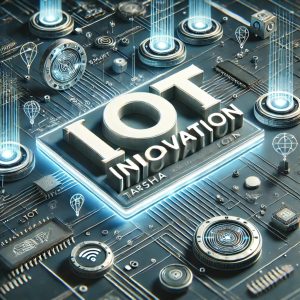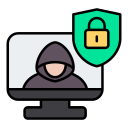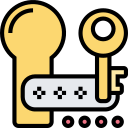IoT Training: Unlock the Power of Connectivity
 Unlock the future of technology with our expert-led Internet of Things (IoT) Training at Darsha Innovation, Kallakurichi. Whether you are a beginner, a professional looking to upgrade your skills, or a business aiming to implement IoT solutions, our comprehensive training programs are tailored to meet your needs.
Unlock the future of technology with our expert-led Internet of Things (IoT) Training at Darsha Innovation, Kallakurichi. Whether you are a beginner, a professional looking to upgrade your skills, or a business aiming to implement IoT solutions, our comprehensive training programs are tailored to meet your needs.
Why Choose Us?
At Darsha Innovation, we believe in providing hands-on, practical learning experiences in the rapidly evolving field of IoT. Our IoT Training program is designed to:
- Equip you with in-depth IoT knowledge: Learn about the core concepts of IoT, including sensors, connectivity, cloud computing, data processing, and much more.
- Gain real-world skills: Our training includes practical sessions and projects that allow you to apply the skills you’ve learned to real-world IoT applications.
- Stay ahead of the curve: With the Internet of Things transforming industries such as healthcare, manufacturing, smart homes, and more, our program ensures you have the most up-to-date knowledge in this fast-growing field.
Course Structure
Our IoT Training program is divided into beginner, intermediate, and advanced levels. Each level includes theory, practical exercises, and projects that simulate real-world IoT scenarios:
- Beginner: Introduction to IoT and basic development tools.
- Intermediate: Building and implementing IoT systems, sensor integration, and cloud data management.
- Advanced: Advanced IoT architecture, security considerations, and industry-specific applications.
Join Our IoT Training Today!
Start your journey to becoming an IoT expert with Darsha Innovation. Our hands-on training, expert instructors, and real-world projects will give you the edge you need to thrive in the IoT industry.
About Us
IoT Training
Courses

Beginner Level
Introduction to IoT, Basics of Sensors, Understanding IoT Architecture.

Intermediate Level
IoT Networking and Protocols, Building and IoT Applications, Data Analytics in IoT.

Advanced Level
IoT Security, Edge Computing & IoT, AI Integration with IoT.
Why Choose Us?
Why Choose Us?
Industry-Driven Curriculum
Our courses are designed in collaboration with IoT experts and industry leaders to ensure you gain the most relevant and up-to-date knowledge.
Hands-On Learning
We emphasize practical skills with real-world projects, giving you the confidence to apply IoT concepts in your career.
Expert Instructors
Learn from experienced professionals who bring years of expertise in IoT development, implementation, and innovation.

Features

Industry-relevant curriculum

Hands-on projects

Flexible learning options

Certification upon completion
FAQs-IoT Training
IoT (Internet of Things) refers to the interconnected network of physical devices, vehicles, appliances, and other items embedded with sensors, software, and connectivity to exchange data. Learning IoT equips you with skills to develop and manage these smart systems, a critical capability in industries like healthcare, manufacturing, transportation, and smart cities.
IoT training usually includes:
- Basics of IoT and its applications.
- Sensors and actuators.
- Communication protocols (e.g., MQTT, CoAP, HTTP).
- IoT platforms (AWS IoT, Azure IoT, etc.).
- Programming (Python, Node.js, etc.).
- Data processing and analytics.
- Security and privacy in IoT systems.
- Hands-on projects to design and implement IoT solutions.
While prerequisites may vary, a basic understanding of:
- Programming languages (like Python or C).
- Networking concepts.
- Electronics and hardware basics (optional but helpful). Some courses cater to beginners, so check the program's requirements before enrolling.
IoT training benefits professionals in:
- IT and software development.
- Data science and analytics.
- Electronics and hardware engineering.
- Project management in smart technologies.
- Fields like healthcare, agriculture, manufacturing, and transportation.
Yes, most IoT training programs include practical projects to help participants gain real-world experience. These may involve:
- Setting up sensors and devices.
- Developing IoT applications.
- Implementing data collection and analysis.
- Testing and deploying IoT solutions in simulated or real environments.
